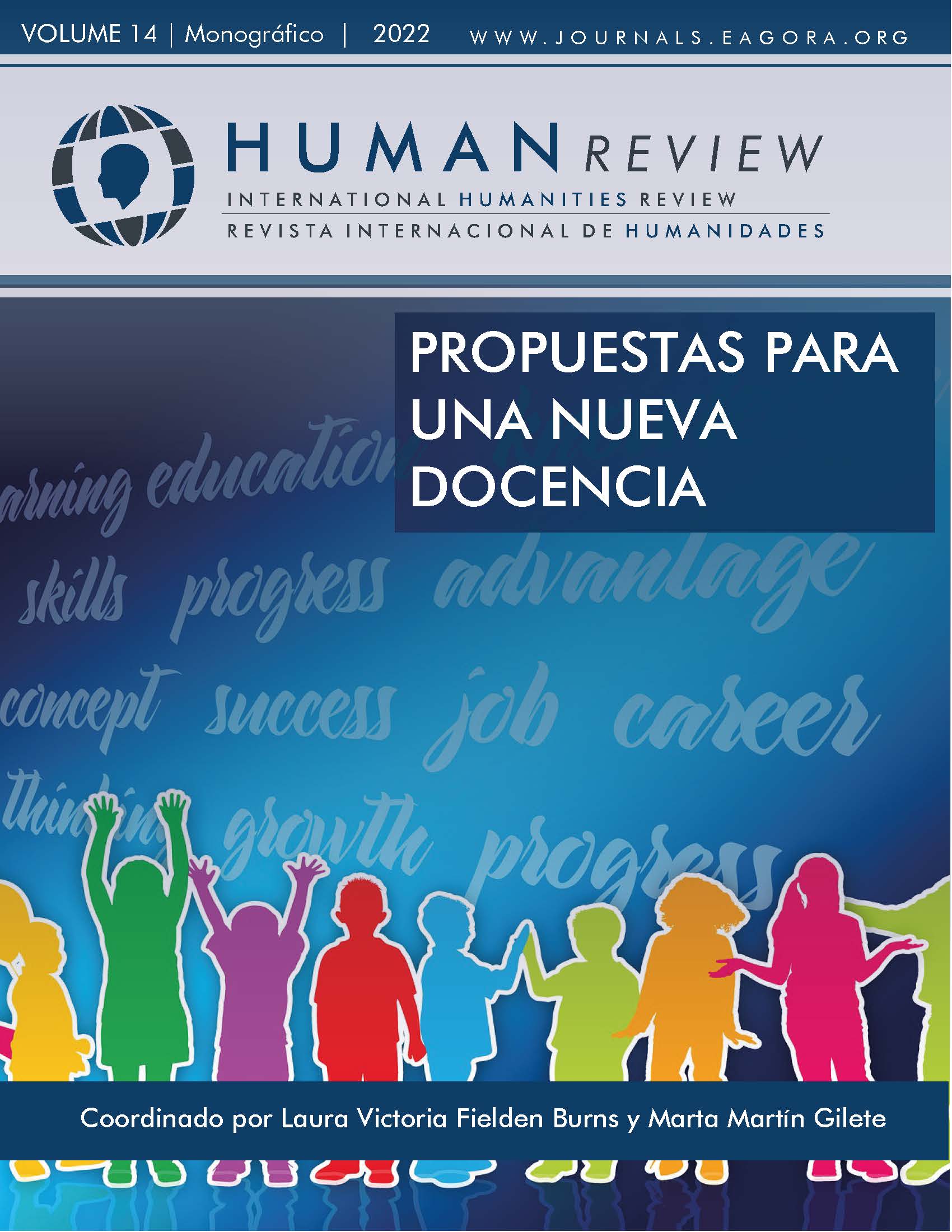Articulation of an Erasmus+ project for senior university students
Keywords:
Erasmus Programme, Senior University Programmes, Social participation, International mobility, Digital competenceAbstract
The Inter-University Experience Programme (PIE) of the University of Burgos (UBU), as a non-formal education programme for adults, has sought to expand opportunities for its students and staff through the development of international partnerships within the framework of the Erasmus+ Programme. Taking into account the priorities of the Programme, such as inclusion and diversity, digital transformation, environment and climate change and participation in democratic life, a comprehensive KA122-ADU Adult Education Short-Term Mobility project has been articulated.
References
Asociación Europea de Universidades. (2008). European Universities’ Charter on Lifelong Learning (EUA (ed.)). www.eua.be
Bai, X., He, Y., & Kohlbacher, F. (2020). Older people’s adoption of e-learning services: A qualitative study of facilitators and barriers [Article]. Gerontology & Geriatrics Education, 41(3), 291-307. https://doi.org/10.1080/02701960.2018.1469488
Belda-Medina, J. (2020). El aprendizaje del Inglés (L2) mediante herramientas digitales (TIC) por estudiantes mayores desde un modelo andragógico y heutagógico [Article]. Tonos digital, 38, 1-24.
Comisión Europea. (2018). Silver Economy Study: How to stimulate the economy by hundreds of millions of Euros per year | Shaping Europe’s digital future. https://ec.europa.eu/digital-single-market/en/news/silver-economy-study-how-stimulate-economy-hundreds-millions-euros-year
Comisión Europea. (2019). Key competences for lifelong learning (J. Dirección General de Educación Deporte y Cultura (ed.)). Publications Office. https://doi.org/doi/10.2766/291008
Comisión Europea. (2020a). COM(2020) 152 final. A Union of Equality: Gender Equality Strategy 2020-2025. https://eige.europa.eu/thesaurus/terms/1263
Comisión Europea. (2020b). COM(2020) 274 final. European skills agenda for sustainable competitiveness, social fairness and resilience. https://ec.europa.eu/social/main.jsp?catId=1223&langId=en
Comisión Europea. (2020c). COM(2020) 565 final. A Union of equality: EU anti-racism action plan 2020-2025.
Comisión Europea. (2020d). COM(2020) 624 final. Comunicación de la Comisión al Parlamento Europeo, al Consejo, al Comité Económico y Social Europeo y al Comité de las Regiones, Plan de Acción de Educación Digital 2021-2027 Adaptar la educación y la formación a la era digital.
Comisión Europea. (2021a). COM(2021) 50 final. Green paper on ageing. Fostering solidarity and responsibility between generations.
Comisión Europea. (2021b). Erasmus+ Guía del programa.
Comisión Europea. (2021c). Council Resolution on a strategic framework for European cooperation in education and training towards the European Education Area and beyond (2021-2030). https://www.consilium.europa.eu/media/48584/st06289-re01-en21.pdf
Comisión Europea. (2021d). The European Pillar of Social Rights Action Plan.
Derhun, F. M., Scolari, G. A. de S., Puig-Llobet, M., Salci, M. A., Baldissera, V. D. A., & Carreira, L. (2019). Participation in university activities for the elderly: Motivations of Brazilian and Spanish Seniors [Article]. Revista Brasileira de Enfermagem, 72(suppl 2), 104-110. https://doi.org/10.1590/0034-7167-2018-0181
Fernández-García, A., García Llamas, J. L., & Pérez Serrano, G. (2014). Los Programas Universitarios de Mayores y su contribución al aprendizaje a lo largo de la vida/The University Programmes for Senior Citizens and their contribution to lifelong learning [Article]. Revista complutense de educación, 25(2), 521.
Formosa, M. (2021). Building Evidence for the Impact of Older Adult Learning on Active Ageing [Article]. AS. Andragoška Spoznanja. https://doi.org/10.4312/as/9934
Naciones Unidas. (2015). Resolution adopted by the General Assembly on 25 September 2015, 70/1. Transforming our world: the 2030 Agenda for Sustainable Development. United Nations.
Nováková, D., & Lorenzová, J. (2020). Motivation of seniors to learn at the Universities of the Third Age [Article]. Sociální Pedagogika, 8(2), 71-83. https://doi.org/10.7441/soced.2020.08.02.05
Peñarrubia-Lozano, C., Segura-Berges, M., Lizalde-Gil, M., & Bustamante, A. J. C. (2021). A qualitative analysis of implementing e-learning during the covid-19 lockdown. Sustainability (Switzerland), 13(6), 3317. https://doi.org/10.3390/su13063317
Seifert, A., Schelling, H. R., Tönsmann, S., & Martin, M. (2020). Participation in research: interest and opinions on participatory research among participants of a senior university [Article]. Zeitschrift Für Gerontologie Und Geriatrie, 53(5), 423-429. https://doi.org/10.1007/s00391-019-01609-0
Serrate González, S., Navarro Prados, A. B., & Muñoz Rodríguez, J. M. (2017). Perfil, motivaciones e intereses de los aprendices mayores hacia los Programas Universitarios [Article]. Revista Educación y Desarrollo Social, 11(1), 156-171. https://doi.org/10.18359/reds.1863
Sullivan, R. (Robin), Fulcher-Rood, K., Kruger, J., Sipley, G., & van Putten, C. (2019). Emerging Technologies for Lifelong Learning and Success: A MOOC for Everyone [Article]. Journal of Educational Technology Systems, 47(3), 318-336. https://doi.org/10.1177/0047239518821065
Unión Europea, R. del C. sobre un nuevo plan europeo de aprendizaje de adultos 2021-2030. D. O. de la. (2021). Unión Europea.

